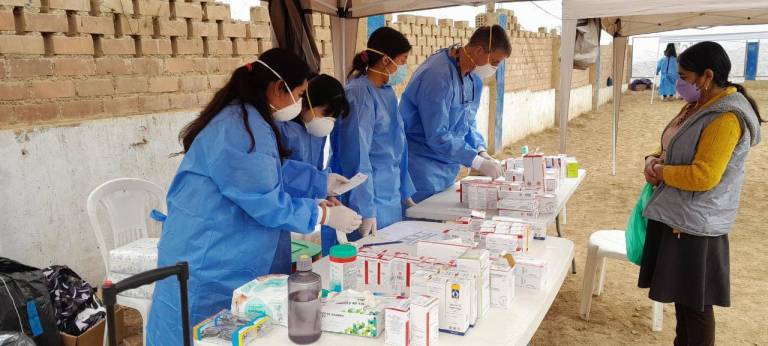Providing healthcare to remote villages in Peru
A team of students at UCL joined forces with members of the international MEDLIFE movement to help provide support to Peruvian rural communities.

10 November 2022
In 2022, a group of UCL students travelled to Peru for eight days in June 2022 to help provide accessible healthcare to the country’s rural communities that live on hills. The student team worked with MEDLIFE volunteers from the US and Canada.
MEDLIFE is an international non-governmental organisation that partners with low-income communities in Latin America and Africa to improve their access to medicine and education, and to undertake community development projects. It encourages students to volunteer by creating groups at their own university and joining service-learning trips to support the MEDLIFE programme. The UCL MEDLIFE Student Society was formed in 2017.
“It stood out to me because it offered the opportunity to help low-income communities in person,” says Swee Lee (Biomedical Sciences), who joined the Society as a fresher in 2019 and was one of the team in Peru.
“It stood out to me because it offered the opportunity to help low-income communities in person.”
On their trip to Peru, the students volunteered with mobile clinics that provide healthcare services, to remote communities, including dispensing free medicines, and supporting GP consultations and cervical cancer testing. The clinics served the whole community, from infants to the elderly. Because the hillside communities were so remote, the students also helped to build concrete staircases up to 50m high so the mobile clinics could access the communities.
“One of the stations in the mobile clinic was focused on teaching female patients about feminine hygiene and health,” explains Swee Lee. “We discussed ovarian and cervical cancer, as well as sexually transmitted diseases. In the communities that we visited, sexual and domestic abuse were common, so we wanted to make it known to the patients when they should seek help through education.”
 Close
Close


